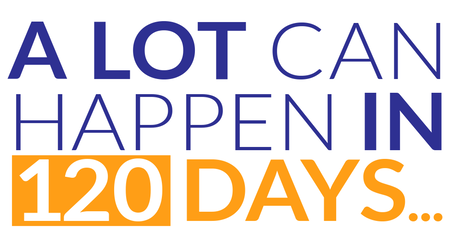Can a Florida Workers’ Compensation Insurance Company Pay Benefits While Investigating and Then Terminate Them Under the “120-Day Rule”?

Understanding Florida’s 120-Day Rule in Workers’ Compensation
When you’re injured on the job in Florida, the workers’ compensation insurance company might begin paying your medical bills or lost wages right away. However, that doesn’t always mean your claim has been accepted.
Under Florida’s 120-Day Rule, found in Florida Statute § 440.20(4), the insurer can pay benefits while investigating the claim’s validity. This is often called the “Pay and Investigate Rule.”
Here’s how it works and how Miami workers’ compensation lawyers use it to protect injured employees.
What Is the 120-Day Rule?
Florida law allows an insurance company to start paying benefits “without prejudice and without admitting liability” for up to 120 days after it first provides benefits.
During this 120-day period, the insurance carrier can investigate the claim to decide whether it’s truly compensable. By the end of that window, the insurer must do one of the following:
Accept the claim and continue benefits, or
Deny compensability with a written notice explaining the reason.
If the carrier fails to issue a denial within that 120-day period, the claim becomes compensable by operation of law which means the claim is accepted permanently for that injury or condition.
When Does the 120-Day Clock Start
The 120-day period starts on the date of the initial provision of benefits, which can be:
Authorization or payment of medical treatment
Payment of lost wage (indemnity) benefits
Any other form of workers’ compensation benefit
It does not start on the date of the accident or injury.
What Happens If the Insurer Misses the 120-Day Deadline?
If the insurance company doesn’t issue a denial within 120 days, and no new “material facts” arise that couldn’t have been discovered earlier, the law says the claim is deemed compensable.
That means:
The insurer cannot later argue the injury isn’t work-related.
The injured worker keeps their right to continued benefits.
Any attempt to deny compensability after that date is usually invalid.
This legal concept is often referred to as creating compensability by operation of law.
Can the Insurance Company Terminate Benefits After Accepting the Claim?
Once compensability is established, either formally or by operation of law, the insurer can later stop benefits, but only for valid reasons such as:
The worker has reached maximum medical improvement (MMI)
The worker returns to work at their regular wages
Medical evidence shows the condition is no longer disabling
However, the carrier cannot later claim that the injury wasn’t work-related if the 120-day rule deadline has passed.
Common Insurance Company Tactics to Watch For
Even in Miami and across Florida, carriers often use the pay-and-investigate rule to buy time. Injured workers should be alert to:
“120-Day Letters” notifying that benefits are being paid while the claim is under investigation.
Benefit suspensions before a proper denial is issued.
Late denials (after 120 days) based on information the carrier already knew.
If you receive a denial after 120 days, talk to a Miami workers’ compensation lawyer immediately — you may be entitled to reinstated benefits under Florida law.
Exceptions to the 120-Day Rule
There is one narrow exception:
If the carrier can prove that new, material facts arose that couldn’t have been discovered with reasonable diligence during the 120-day period, it may still deny the claim later.
Examples include:
Fraud or false statements discovered later
A pre-existing condition revealed through later medical testing
A newly identified, unrelated cause of injury
Even then, the burden is on the insurer to prove those facts truly couldn’t have been found earlier.
How an Experienced Miami Workers’ Compensation Lawyer Can Help
Navigating the 120-Day Rule requires experience and timing. A skilled Florida workers’ compensation attorney can:
Track the 120-day deadline and document when benefits first began
Demand proof of the insurer’s investigation timeline and notices
Challenge late denials that violate § 440.20(4)
Argue compensability by operation of law at a hearing
Protect your right to continued medical and wage benefits
Key Takeaways for Injured Workers in Florida
Being paid benefits doesn’t always mean your claim is accepted.
The insurance company has 120 days to deny compensability after starting payments.
If they don’t deny in time, your injury is deemed accepted.
Only limited exceptions apply for undiscoverable facts.
A knowledgeable Miami workers’ compensation lawyer can hold the insurer accountable.
Contact a Miami Workers’ Compensation Attorney
If your Florida workers’ compensation benefits were started and then suddenly stopped, or if you received a denial letter after months of payments, you may have strong rights under the 120-Day Rule.
Call Attorney Juan Lucas Alvarez who has over 28 years of experience handling Florida workers compensation claims. He’ll review your timeline, the insurance company’s actions, and help you fight for the benefits you deserve.







